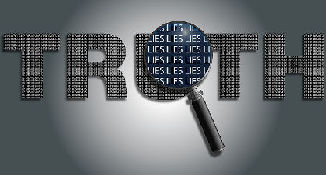| CHAPTER I. |
| THE ORIGIN AND AUTHORITY OF THE ACTS OF THE APOSTLES. |
| Acts i. 1, 2. |
|
PAGE |
|
Title—Apocryphal Acts—Paul and Thecla—Evidence of Tertullian—His Chronological Position—Modern Analogies—Muratorian Fragment and Bobbio—Epistle from Lyons—Pothinus an Apostolic Man—Marcion and St. Luke—Defects of German Criticism—Growth of New Testament Canon—Newly-discovered Second Century Documents—Scillitan Martyrs—Primitive Christians and Biblical Criticism—Advantages of Uncertainty on Theology—Theological Accuracy of St. Luke
|
1‑22 |
| CHAPTER II. |
| THE CONVERSATIONS OF THE GREAT FORTY DAYS. |
| Acts i. 6-9. |
|
Subject-Matter Revealed in the Acts—Our Lord’s Post-Resurrection Appearances—Apostolic Curiosity—Messianic Idea among Jews—Books of Enoch and of Jubilees—Evidence for Inspiration of New Testament—Christianity a Practical Religion—Contrast with Paganism—Mithraism—Spiritual Blessing of Christ’s Reticence concerning the Future—Antinomies in Scripture—Bad Effects of Human Curiosity—At Thessalonica—In the Middle Ages—In Last and Present Centuries—Irvingism—Holy Ghost alone the Source of Spiritual Power
|
23‑42 |
| [xvi]CHAPTER III. |
| THE ASCENSION OF CHRIST, AND ITS LESSONS. |
| Acts i. 9. |
|
Position of Doctrine of Ascension in Epistles—And in Apostolic Teaching—Curious and Foolish Questions about it—The Unseen Universe—Fitness of the Doctrine—And Necessity if the Church was to rise out of Judaism into Christianity—Illustrations, London and the Papacy—Rénan’s Theory—The Ascension Glorified Human Nature—Paganism Degraded It—Gladiatorial Shows and Story of the Monk Telemachus—Tacitus and Slavery—Cato the Censor and the Treatment of Slaves—The Ascension and Darwinism
|
43‑60 |
| CHAPTER IV. |
| THE ELECTION OF MATTHIAS. |
| Acts i. 24-26. |
|
Expectation Days—Principle of Divine Delay—Christian Seasons and Judaism—Pentecost and Sinai—Continuity of the Divine Purposes—Christian Chronology—Tatian’s Oration—The Apostles and the Upper Room—Narratives of Epiphanius and Cyril of Jerusalem—Christianity Supra-local—Last Notice of the Blessed Virgin—Doctrine of the Assumption—Self-restraint of Scriptural Writers—Choice of New Apostle—St. Peter’s Proposition—His Character—Privilegium Petri—Reasons for the Election—The Christian Ministry and the Resurrection—C. Leslie’s Short and Easy Method—History of St. Matthias—Apocryphal Gospels—Papias on Fate of Judas Iscariot
|
61‑81 |
| CHAPTER V. |
| THE PENTECOSTAL BLESSING. |
| Acts ii. 1-4. |
| [xvii]
Origin and History of Pentecost—Gnosticism and Antinomianism—Modern Aspect of Ancient Heresies—Ancient Union and Modern Divisions of Christendom—Jeremy Taylor’s Prayer—The Fiery Tongues—Protest against Persecution and Penal Laws in Religion—Ussher and Baxter, Mistakes of—Death-Scene of Queen Caroline—Importance of Corporate Aspect of Christianity—Clergy and Laity in Apostolic Church—Gift of Tongues and Irvingism—Modern Theories about Pentecost—Hypnotism—Greek and Latin not Universal Languages in Apostolic Times—Ramsay’s Geography of Asia Minor
|
82‑106 |
| CHAPTER VI. |
| ST. PETER’S FIRST SERMON. |
| Acts ii. 14. |
|
Reports of Ancient Sermons, how Derived—Use of Shorthand among Ancients—St. Peter’s Auditory—Celts of Britain at Crucifixion—Jews in Arabia—Homerite Martyrs—St. Peter’s Conduct at Pentecost an Evidence for the Resurrection—Contrast with his Action at Antioch—St. Peter’s Universal Conceptions and Language—A Protest against Ebionism and Unitarianism—St. Peter and Christ’s Descent into Hades—Apollinarianism and the True Doctrine of Our Lord’s Humanity—David’s Sepulchre and Christ’s Resurrection—Jewish Traditions
|
107‑126 |
| CHAPTER VII. |
| THE FIRSTFRUITS OF PENTECOST. |
| Acts ii. 37-39. |
|
Contrast between Our Lord’s Preaching and that of His Apostles—Proof of Extraordinary Work of the Spirit—Evidence of Tacitus—Spiritual Power a Different Thing from Religious Knowledge—Character of St. Peter’s Teaching—Repentance—Modern Antinomianism—Williams, Baxter, Stillingfleet, Wesley—St. Peter and Baptism—Baptism in the Didache—Story of that Manual and its Discovery—The Baptismal Formula—Immersion—Infant Baptism—St. Peter and the Power of the Keys
|
127‑147 |
| CHAPTER VIII. |
| FIRST RECORDED MIRACLE AND FIRST PERSECUTION. |
| Acts iii. 1-6. |
| [xviii]
The Acts a Mirror of Church History—Pause after Pentecost, Reason of—Need of Pastoral Work—Relapses in Mission Field—The Corinthian Case—Rest and Spiritual Growth—Evils of Excitement—Contrast of Christianity with the Montanists and Cynics—True Religion not, however, Purely Contemplative—Circumstances of First Miracle—Which was Typical of Church’s Future Work—Among the Poor and Sick—Story of St. Crispin—St. Chrysostom’s Sermons—First Franciscans Contrasted with Early Methodists—Medical Missions—Place of Miracle—Solomon’s Porch—St. Peter’s Address Model for Preachers—Shows Divinity of Christ—Exalts Christ—Is Bold and Prudent withal
|
148‑172 |
| CHAPTER IX. |
| THE FIRST PERSECUTION. |
| Acts iv. 1-3, 5-7. |
|
St. Peter’s Teaching in Solomon’s Porch and the Captain of the Temple—The Romans and Jewish Law—Discovery of Temple Tablet—The Sadducees and the Work of Opposition—Sadduceism and Modern Theories—Sceptics and Religious Intolerance—Pliny and the Martyrs—Trial of the Apostles—Constitution of the Sanhedrin—Sadduceism and the Priesthood—St. Peter’s Defence and Christ’s Promise—Afford no Support to Unprepared Teaching in Ordinary Life—St. Peter and the Power of Christ’s Name—The Sanhedrin and Miracles—The Jews and Magic—Reverence towards the Name of God—Early Symbolism and Christ’s Name—Salvation through Christ and the Wider Hope
|
173‑192 |
| CHAPTER X. |
| THE COMMUNITY OF GOODS. |
| Acts iv. 32-35. |
|
The Holy Scriptures and the Errors of their Heroes—Controversy between St. Jerome and St. Augustine—A Mistaken View of Christ’s Second Advent the Source of Community of Goods—Communism and the Essenes—And Anabaptists—And Plymouthism—Source of Poverty in Jerusalem Church—Warning to Missionary Churches—Apostolic Constitutions—And Primitive Missions—Fayûm Documents—Evils of Indiscriminate Almsgiving—True Christian Charity—Post Office Savings Banks—Jerusalem Communism and Modern Legislation and Ideals—A Warning and yet a Noble Conception—Connection of Enthusiasm and Spiritual Power
|
193‑210 |
| [xix]CHAPTER XI. |
| HONESTY AND PRETENCE IN THE PRIMITIVE CHURCH. |
| Acts iv. 36, 37; v. 1-6. |
|
Hebrews and Hellenists in the Synagogue and in the Church—Original Christians were Hebrews—Introduction of Hellenists—Who became the Bridge whereby Christianity was Communicated to the World—Barnabas and Greek Culture—A Native of Cyprus—His Personal Appearance—And History according to Simeon Metaphrastes—Personal Character—Story of Ananias—His Sin and Punishment—Proved that Christianity had a Stern as well as a Loving Side—Dr. Vaughan’s Application of this Incident
|
211‑228 |
| CHAPTER XII. |
| GAMALIEL AND HIS PRUDENT ADVICE. |
| Acts v. 38-40. |
|
The Apostles again Brought before Sanhedrin—Because of St. Peter’s Miracles—Note on the Miraculous Effects of St. Peter’s Shadow and Hypnotism—St. Peter and Angelic Deliverances—Jortin’s Theory—The Incarnation Rendered the Age a Special Time—The Sadducees and Materialism—Gamaliel a Pharisee—Effect of a Spiritual Creed on the Character—His Address—Cases of Judas and Theudas—Modern Illustrations—Gamaliel’s Family History—Gamaliel in the Clementine Recognitions and in Greek Christian Tradition—Gamaliel and Nicodemus in the Bibliotheca of Photius—Gamaliel and the Spirit of Toleration—St. Augustine and Cornelius à Lapide—Conduct of the Apostles
|
229‑245 |
| CHAPTER XIII. |
| PRIMITIVE DISSENSIONS AND APOSTOLIC PRECAUTIONS. |
| Acts vi. 1-4. |
| [xx]
The Election of the Seven a Crisis in Church History—Date of St. Stephen’s Martyrdom—Occasion of it—Primal Relation of Judaism to Christianity—Not Mutually Exclusive—Illustrated by those of First Methodists to Church of England—Tyranny and Deposition of Pilate—Multiplication of Christians led to Murmuring and thence to Choice of Seven—Showing Benefits and Drawbacks of Prosperity—Imperfections of Apostolic Church—Fallacy of Roman à priori Argument for Infallibility—Reciprocal Influence of Church and World—Various Meanings of Term “World”—Murmuring arose from Racial and Linguistic Differences—Hebrews and Hellenists—Modern Analogies—Diversity of Functions in Church—Serving of Tables Differs from Ministry of Word—Which Demands Study, Meditation, and Prayer—Weakness of Modern Pulpit Accounted for—Election of Deacons and Number—The Diaconate and Cardinalate
|
246‑267 |
| CHAPTER XIV. |
| ST. STEPHEN AND THE EVOLUTION OF THE CHRISTIAN MINISTRY. |
| Acts vi. 5, 6; 8-11. |
|
The Seven were Scriptural—Origin of Diaconate—Bishop Lightfoot’s View—Influence of the Synagogue upon the Church—Illustrated by Marcionites—And by Pilgrim Fathers in New England—Constitution of Synagogues—Jewish Almoners or Deacons—Evidence to Diaconate of Apostolic Fathers—Of Pliny—Of Irenæus—Connection of Community of Goods with the Eucharist—Poor Law among Jews—And Christians—Testimony of Lucian—Christianity Viewed from the Outside—Difference between Ancient and Modern Office—Life-long Diaconate in Ancient Celtic Church—St. Patrick’s Father—Election of Deacons in the Synagogues—Imposition of Hands and Ordination—Names of Deacons and Nicolas of Antioch—St. Stephen and the Charge of Blasphemy—Every True Teacher must expect Misrepresentation
|
268‑292 |
| CHAPTER XV. |
| ST. STEPHEN’S DEFENCE AND THE DOCTRINE OF INSPIRATION. |
| Acts vi. 12-14; vii. 1, 2. |
| [xxi]
Derivation and Meaning of Name “Stephen”—Libertine Assailants of St. Stephen—United with Cilicians—St. Paul and the Sanhedrin—Selden on Sanhedrin—Use of Shorthand among the Ancients—The Acts of the Martyrs and Investigations of M. le Blant—Effective Character of Stephen’s Apology—Analysis of it—Naturally Irritating to Jewish Officialism—Charity towards Persecutors—Reverence towards the Past—A Good Thing, but may be Pressed too far—Lessons for our Age—Science and Religion—Mistakes in the Martyr’s Speech—Natural—Useful, too, as Testifying to Honesty of Report—And Teaching True Doctrine of Inspiration—Dr. Vaughan on St. Stephen’s Mistakes—St. Stephen and Freedom of Church Worship—Christian Universalism not Inconsistent with Sacred and Consecrated Buildings
|
293‑321 |
| CHAPTER XVI. |
| THE FIRST CHRISTIAN MARTYRDOM. |
|
Testimony of Church of Lyons to St. Stephen’s Martyrdom—Earliest Celtic Martyrdoms and Celtic Assemblies—Christmas Day and St. Stephen’s Day—Christmas Season and Three Classes of Martyrs—Dies Natalis and the Liturgies—Immediate Cause of St. Stephen’s Death—Locality of the Martyrdom—Newly-discovered Church of St. Stephen—Survey of Western Palestine—Jewish Stonings—St. Stephen died under Forms of Law—Christianity and Human Law—Testimony of St. Clement’s Epistle—St. Stephen and Prayer to Jesus Christ—Doctrine of Book of Common Prayer—St. Stephen’s Funeral—Early Christian View of Resurrection—Story told by John Malalas—Persecution and Church Extension
|
322‑345 |
| CHAPTER XVII. |
| SIMON MAGUS AND THE CONVERSION OF SAMARIA. |
|
Prominence of Hellenists in the Church’s Earliest Days—Apostles and Deacons Contrasted—Source of St. Luke’s Knowledge of Early Church History—St. Philip at Cæsarea—Exact Locality where Philip taught in Samaria—Our Lord’s Ministry in Samaria a Failure—Why?—Because the Spirit was not yet given—Presence of the Holy Ghost the Condition of Permanent Blessing—St. Philip and Simon Magus—Story of Simon as told by Justin Martyr—Evidence for Early Date of the Acts—Justin and Simon’s Statue—Simon a Sorcerer—Jews and Sorcery—Jewish Gnosticism—Fayûm Manuscripts and Magic—Contrast between Philip’s Miracles and Simon’s Magic—Need of Miracles at Outset of Christianity—Philip’s Doctrine Concerning the Kingdom of God—What it involved—Church’s Prosperity Dependent entirely upon Christ—Threefold Result of Philip’s Teaching—John Keble on Christian Joy
|
346‑368 |
| [xxii]CHAPTER XVIII. |
| THE APOSTLES AND CONFIRMATION. |
|
Apostolic Mission to Samaria—Development of Church—Position of St. Peter—False Decretals—Confirmation, Origin of—New Testament is not an Exhaustive Manual of Rites and Ceremonies—Tertullian on Standing at Prayer—Conservative Character of Church Ritual—Illustrated by Cases of Dean Hook, J. H. Newman, Tate and Brady, and the Plymouth Brethren—Apostolic Example Perpetuated in Second Century Practice—And in Case of Confirmation—Calvin on its Apostolic Origin
|
369‑384 |
| CHAPTER XIX. |
| ST. PETER AND SIMON MAGUS. |
| Acts viii. 18, 19. |
|
Change in Confirmation at Reformation—Yet the Rite remained Essentially the Same as of Old—Importance of Tertullian’s Testimony for its Primitive Origin—Cyprian’s and Augustine’s View—Relation of Cyprian to Tertullian—Imposition of Hands United with Prayer in Ancient and Modern Church—Utility and Blessings of the Rite—Improvement which might be made in its Administration—Conduct of Simon Magus—He was Intellectually Convinced but Spiritually Unconverted—Application of his Example to Foreign Missions—Late Controversy Concerning Educational Missions—Simon’s Conduct and Simony—Definition of Simony—Sin not Confined to Established Churches—Takes Subtle Shapes in Every Community—St. Peter’s Exhortation to Simon Magus—Corrects a Modern Error
|
385‑397 |
| CHAPTER XX. |
| EVANGELISTIC WORK IN THE PHILISTINE’S LAND. |
| Acts viii. 26-8; ix. 32. |
| [xxiii]
Those Passages Typical of Evangelistic Efforts and Qualifications for Success in them—St. Philip Contrasted with St. Peter—Need of Education for Mission Field—Christian Missionaries of Early Centuries Partook of Highest Culture—Pantænus—Origen—Clement—These Texts show Importance of Clear Conception in Theology—Clear Views need not be Narrow Views—Distinction between St. Philip’s Guidance and that of St. Peter—Reasons for Angelic Interference—Archbishop Trench on John v. 4.—Apostolic Labours all tended Westward—Philip’s Mission towards Gaza—Obstinate Paganism of Gaza—Proved by Survey of Palestine—Ethiopian Eunuch—Candace and her Kingdom—St. Philip’s Doctrines—Abyssinian Traditions—Revised Version and the Eunuch’s Confession—Creed of Apostolic Church—Witness of Aristides’ Apology
|
398‑419 |
| INDEX |
421‑424 |
 What Destroys more pastors than anything else? Stress!
What Destroys more pastors than anything else? Stress! 





Stokes Expositor’s Bible: The Acts of the Apostles, Vol. 1
CONTENTS.
Title—Apocryphal Acts—Paul and Thecla—Evidence of Tertullian—His Chronological Position—Modern Analogies—Muratorian Fragment and Bobbio—Epistle from Lyons—Pothinus an Apostolic Man—Marcion and St. Luke—Defects of German Criticism—Growth of New Testament Canon—Newly-discovered Second Century Documents—Scillitan Martyrs—Primitive Christians and Biblical Criticism—Advantages of Uncertainty on Theology—Theological Accuracy of St. Luke
Subject-Matter Revealed in the Acts—Our Lord’s Post-Resurrection Appearances—Apostolic Curiosity—Messianic Idea among Jews—Books of Enoch and of Jubilees—Evidence for Inspiration of New Testament—Christianity a Practical Religion—Contrast with Paganism—Mithraism—Spiritual Blessing of Christ’s Reticence concerning the Future—Antinomies in Scripture—Bad Effects of Human Curiosity—At Thessalonica—In the Middle Ages—In Last and Present Centuries—Irvingism—Holy Ghost alone the Source of Spiritual Power
Position of Doctrine of Ascension in Epistles—And in Apostolic Teaching—Curious and Foolish Questions about it—The Unseen Universe—Fitness of the Doctrine—And Necessity if the Church was to rise out of Judaism into Christianity—Illustrations, London and the Papacy—Rénan’s Theory—The Ascension Glorified Human Nature—Paganism Degraded It—Gladiatorial Shows and Story of the Monk Telemachus—Tacitus and Slavery—Cato the Censor and the Treatment of Slaves—The Ascension and Darwinism
Expectation Days—Principle of Divine Delay—Christian Seasons and Judaism—Pentecost and Sinai—Continuity of the Divine Purposes—Christian Chronology—Tatian’s Oration—The Apostles and the Upper Room—Narratives of Epiphanius and Cyril of Jerusalem—Christianity Supra-local—Last Notice of the Blessed Virgin—Doctrine of the Assumption—Self-restraint of Scriptural Writers—Choice of New Apostle—St. Peter’s Proposition—His Character—Privilegium Petri—Reasons for the Election—The Christian Ministry and the Resurrection—C. Leslie’s Short and Easy Method—History of St. Matthias—Apocryphal Gospels—Papias on Fate of Judas Iscariot
Origin and History of Pentecost—Gnosticism and Antinomianism—Modern Aspect of Ancient Heresies—Ancient Union and Modern Divisions of Christendom—Jeremy Taylor’s Prayer—The Fiery Tongues—Protest against Persecution and Penal Laws in Religion—Ussher and Baxter, Mistakes of—Death-Scene of Queen Caroline—Importance of Corporate Aspect of Christianity—Clergy and Laity in Apostolic Church—Gift of Tongues and Irvingism—Modern Theories about Pentecost—Hypnotism—Greek and Latin not Universal Languages in Apostolic Times—Ramsay’s Geography of Asia Minor
Reports of Ancient Sermons, how Derived—Use of Shorthand among Ancients—St. Peter’s Auditory—Celts of Britain at Crucifixion—Jews in Arabia—Homerite Martyrs—St. Peter’s Conduct at Pentecost an Evidence for the Resurrection—Contrast with his Action at Antioch—St. Peter’s Universal Conceptions and Language—A Protest against Ebionism and Unitarianism—St. Peter and Christ’s Descent into Hades—Apollinarianism and the True Doctrine of Our Lord’s Humanity—David’s Sepulchre and Christ’s Resurrection—Jewish Traditions
Contrast between Our Lord’s Preaching and that of His Apostles—Proof of Extraordinary Work of the Spirit—Evidence of Tacitus—Spiritual Power a Different Thing from Religious Knowledge—Character of St. Peter’s Teaching—Repentance—Modern Antinomianism—Williams, Baxter, Stillingfleet, Wesley—St. Peter and Baptism—Baptism in the Didache—Story of that Manual and its Discovery—The Baptismal Formula—Immersion—Infant Baptism—St. Peter and the Power of the Keys
The Acts a Mirror of Church History—Pause after Pentecost, Reason of—Need of Pastoral Work—Relapses in Mission Field—The Corinthian Case—Rest and Spiritual Growth—Evils of Excitement—Contrast of Christianity with the Montanists and Cynics—True Religion not, however, Purely Contemplative—Circumstances of First Miracle—Which was Typical of Church’s Future Work—Among the Poor and Sick—Story of St. Crispin—St. Chrysostom’s Sermons—First Franciscans Contrasted with Early Methodists—Medical Missions—Place of Miracle—Solomon’s Porch—St. Peter’s Address Model for Preachers—Shows Divinity of Christ—Exalts Christ—Is Bold and Prudent withal
St. Peter’s Teaching in Solomon’s Porch and the Captain of the Temple—The Romans and Jewish Law—Discovery of Temple Tablet—The Sadducees and the Work of Opposition—Sadduceism and Modern Theories—Sceptics and Religious Intolerance—Pliny and the Martyrs—Trial of the Apostles—Constitution of the Sanhedrin—Sadduceism and the Priesthood—St. Peter’s Defence and Christ’s Promise—Afford no Support to Unprepared Teaching in Ordinary Life—St. Peter and the Power of Christ’s Name—The Sanhedrin and Miracles—The Jews and Magic—Reverence towards the Name of God—Early Symbolism and Christ’s Name—Salvation through Christ and the Wider Hope
The Holy Scriptures and the Errors of their Heroes—Controversy between St. Jerome and St. Augustine—A Mistaken View of Christ’s Second Advent the Source of Community of Goods—Communism and the Essenes—And Anabaptists—And Plymouthism—Source of Poverty in Jerusalem Church—Warning to Missionary Churches—Apostolic Constitutions—And Primitive Missions—Fayûm Documents—Evils of Indiscriminate Almsgiving—True Christian Charity—Post Office Savings Banks—Jerusalem Communism and Modern Legislation and Ideals—A Warning and yet a Noble Conception—Connection of Enthusiasm and Spiritual Power
Hebrews and Hellenists in the Synagogue and in the Church—Original Christians were Hebrews—Introduction of Hellenists—Who became the Bridge whereby Christianity was Communicated to the World—Barnabas and Greek Culture—A Native of Cyprus—His Personal Appearance—And History according to Simeon Metaphrastes—Personal Character—Story of Ananias—His Sin and Punishment—Proved that Christianity had a Stern as well as a Loving Side—Dr. Vaughan’s Application of this Incident
The Apostles again Brought before Sanhedrin—Because of St. Peter’s Miracles—Note on the Miraculous Effects of St. Peter’s Shadow and Hypnotism—St. Peter and Angelic Deliverances—Jortin’s Theory—The Incarnation Rendered the Age a Special Time—The Sadducees and Materialism—Gamaliel a Pharisee—Effect of a Spiritual Creed on the Character—His Address—Cases of Judas and Theudas—Modern Illustrations—Gamaliel’s Family History—Gamaliel in the Clementine Recognitions and in Greek Christian Tradition—Gamaliel and Nicodemus in the Bibliotheca of Photius—Gamaliel and the Spirit of Toleration—St. Augustine and Cornelius à Lapide—Conduct of the Apostles
The Election of the Seven a Crisis in Church History—Date of St. Stephen’s Martyrdom—Occasion of it—Primal Relation of Judaism to Christianity—Not Mutually Exclusive—Illustrated by those of First Methodists to Church of England—Tyranny and Deposition of Pilate—Multiplication of Christians led to Murmuring and thence to Choice of Seven—Showing Benefits and Drawbacks of Prosperity—Imperfections of Apostolic Church—Fallacy of Roman à priori Argument for Infallibility—Reciprocal Influence of Church and World—Various Meanings of Term “World”—Murmuring arose from Racial and Linguistic Differences—Hebrews and Hellenists—Modern Analogies—Diversity of Functions in Church—Serving of Tables Differs from Ministry of Word—Which Demands Study, Meditation, and Prayer—Weakness of Modern Pulpit Accounted for—Election of Deacons and Number—The Diaconate and Cardinalate
The Seven were Scriptural—Origin of Diaconate—Bishop Lightfoot’s View—Influence of the Synagogue upon the Church—Illustrated by Marcionites—And by Pilgrim Fathers in New England—Constitution of Synagogues—Jewish Almoners or Deacons—Evidence to Diaconate of Apostolic Fathers—Of Pliny—Of Irenæus—Connection of Community of Goods with the Eucharist—Poor Law among Jews—And Christians—Testimony of Lucian—Christianity Viewed from the Outside—Difference between Ancient and Modern Office—Life-long Diaconate in Ancient Celtic Church—St. Patrick’s Father—Election of Deacons in the Synagogues—Imposition of Hands and Ordination—Names of Deacons and Nicolas of Antioch—St. Stephen and the Charge of Blasphemy—Every True Teacher must expect Misrepresentation
Derivation and Meaning of Name “Stephen”—Libertine Assailants of St. Stephen—United with Cilicians—St. Paul and the Sanhedrin—Selden on Sanhedrin—Use of Shorthand among the Ancients—The Acts of the Martyrs and Investigations of M. le Blant—Effective Character of Stephen’s Apology—Analysis of it—Naturally Irritating to Jewish Officialism—Charity towards Persecutors—Reverence towards the Past—A Good Thing, but may be Pressed too far—Lessons for our Age—Science and Religion—Mistakes in the Martyr’s Speech—Natural—Useful, too, as Testifying to Honesty of Report—And Teaching True Doctrine of Inspiration—Dr. Vaughan on St. Stephen’s Mistakes—St. Stephen and Freedom of Church Worship—Christian Universalism not Inconsistent with Sacred and Consecrated Buildings
Testimony of Church of Lyons to St. Stephen’s Martyrdom—Earliest Celtic Martyrdoms and Celtic Assemblies—Christmas Day and St. Stephen’s Day—Christmas Season and Three Classes of Martyrs—Dies Natalis and the Liturgies—Immediate Cause of St. Stephen’s Death—Locality of the Martyrdom—Newly-discovered Church of St. Stephen—Survey of Western Palestine—Jewish Stonings—St. Stephen died under Forms of Law—Christianity and Human Law—Testimony of St. Clement’s Epistle—St. Stephen and Prayer to Jesus Christ—Doctrine of Book of Common Prayer—St. Stephen’s Funeral—Early Christian View of Resurrection—Story told by John Malalas—Persecution and Church Extension
Prominence of Hellenists in the Church’s Earliest Days—Apostles and Deacons Contrasted—Source of St. Luke’s Knowledge of Early Church History—St. Philip at Cæsarea—Exact Locality where Philip taught in Samaria—Our Lord’s Ministry in Samaria a Failure—Why?—Because the Spirit was not yet given—Presence of the Holy Ghost the Condition of Permanent Blessing—St. Philip and Simon Magus—Story of Simon as told by Justin Martyr—Evidence for Early Date of the Acts—Justin and Simon’s Statue—Simon a Sorcerer—Jews and Sorcery—Jewish Gnosticism—Fayûm Manuscripts and Magic—Contrast between Philip’s Miracles and Simon’s Magic—Need of Miracles at Outset of Christianity—Philip’s Doctrine Concerning the Kingdom of God—What it involved—Church’s Prosperity Dependent entirely upon Christ—Threefold Result of Philip’s Teaching—John Keble on Christian Joy
Apostolic Mission to Samaria—Development of Church—Position of St. Peter—False Decretals—Confirmation, Origin of—New Testament is not an Exhaustive Manual of Rites and Ceremonies—Tertullian on Standing at Prayer—Conservative Character of Church Ritual—Illustrated by Cases of Dean Hook, J. H. Newman, Tate and Brady, and the Plymouth Brethren—Apostolic Example Perpetuated in Second Century Practice—And in Case of Confirmation—Calvin on its Apostolic Origin
Change in Confirmation at Reformation—Yet the Rite remained Essentially the Same as of Old—Importance of Tertullian’s Testimony for its Primitive Origin—Cyprian’s and Augustine’s View—Relation of Cyprian to Tertullian—Imposition of Hands United with Prayer in Ancient and Modern Church—Utility and Blessings of the Rite—Improvement which might be made in its Administration—Conduct of Simon Magus—He was Intellectually Convinced but Spiritually Unconverted—Application of his Example to Foreign Missions—Late Controversy Concerning Educational Missions—Simon’s Conduct and Simony—Definition of Simony—Sin not Confined to Established Churches—Takes Subtle Shapes in Every Community—St. Peter’s Exhortation to Simon Magus—Corrects a Modern Error
Those Passages Typical of Evangelistic Efforts and Qualifications for Success in them—St. Philip Contrasted with St. Peter—Need of Education for Mission Field—Christian Missionaries of Early Centuries Partook of Highest Culture—Pantænus—Origen—Clement—These Texts show Importance of Clear Conception in Theology—Clear Views need not be Narrow Views—Distinction between St. Philip’s Guidance and that of St. Peter—Reasons for Angelic Interference—Archbishop Trench on John v. 4.—Apostolic Labours all tended Westward—Philip’s Mission towards Gaza—Obstinate Paganism of Gaza—Proved by Survey of Palestine—Ethiopian Eunuch—Candace and her Kingdom—St. Philip’s Doctrines—Abyssinian Traditions—Revised Version and the Eunuch’s Confession—Creed of Apostolic Church—Witness of Aristides’ Apology
Works from this Category
Expositors-Bible-The-Acts-of-the-Apostles-Vol.-1.mobi
234 Downloads
Details
Expositors-Bible-The-Acts-of-the-Apostles-Vol.-1.epub
226 Downloads
Details